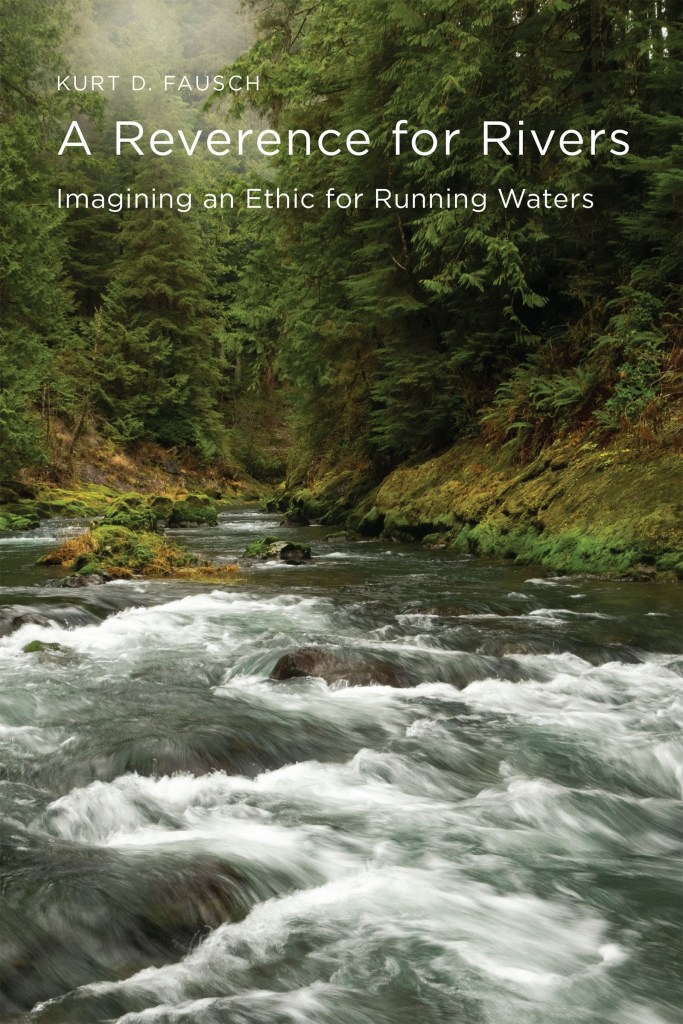The Bookmonger: Replenishing our relationship with rivers
Published 12:20 am Thursday, May 22, 2025

- “A Reverence for Rivers” by Kurt D. Fausch OSU Press – 460 pp — $24.95
Oregon State University Press has just published “A Reverence for Rivers,” an eloquent plea from an eminent stream ecologist that humanity needs to think more deeply and constructively about the ethical conservation of rivers.
Ten years ago, Kurt Fausch wrote “For the Love of Rivers: A Scientist’s Journey” as an homage to river ecologist Shigeru Nakano, who had pioneered research into the complex web of streamside organisms, including trees and humans, that impacted aquatic ecosystems.
Fausch was a professor in Colorado State University’s Department of Fish, Wildlife and Conservation Biology at the time.
Now a professor emeritus after spending his career studying freshwater habitats, Fausch returns to the topic of river conservation with an increased sense of urgency.
In “A Reverence for Rivers,” the author reminds us that despite the relatively small amount of real estate that streams and rivers occupy on the planet, they support a disproportionately large swath of species, from midges and mayflies to salmon, sturgeon – and people.
Yet as humanity trawls these waters for fish, siphons them off for agriculture, dams them for hydropower, and uses them for shipping products to market or for conveying effluent away — all of these impact river systems and compromise their resilience.
To make matters worse, now climate change is amplifying additional pressures such as severe droughts, extreme flooding, and opportunistic colonization by invasive species.
Fausch worries that we haven’t been truly mindful of the essential life-sustaining value of rivers.
“This book is my attempt … to help foster the evolution of an ethic for running waters among thinking communities who seek to conserve them,” he writes.
The author urges us to look beyond our utilitarian needs for rivers, and consider the reciprocal nature of the relationship: in this anthropogenic age, what are our responsibilities to ensuring the continuing vitality of rivers?
He shares findings from the many years he spent in the field (and knee-deep in streams) assaying water samples, monitoring biological processes, and studying fish behaviors. But Fausch has a knack for compelling storytelling, too. He shares the plight of life forms which evolved over millions of years in conjunction with conditions offered by specific topographies and water courses – only to have humans re-engineer these places for their own convenience in the last century or two.
The case studies he discusses range from upper Saskatchewan to the northern tip of Japan, but readers of this column will be interested to know that the author begins with work performed much closer to home — the Salmon River and Cascade Head along Oregon’s Central Coast.
Researchers have determined that extractive industries can leave long-term adverse legacies on the landscape — even decades after such practices have been improved or discontinued.
On the other hand, studies show that land that had been diked off at sea level for dairy pastures but later restored as estuary, enables salmon to return rather quickly and establish more resilient “life-history” strategies.
This book urges us to remember that healthy river systems are key to sustaining life on Earth.
The Bookmonger is Barbara Lloyd McMichael, who writes this weekly column focusing on the books, authors and publishers of the Pacific Northwest. Contact her at bkmonger@nwlink.com





